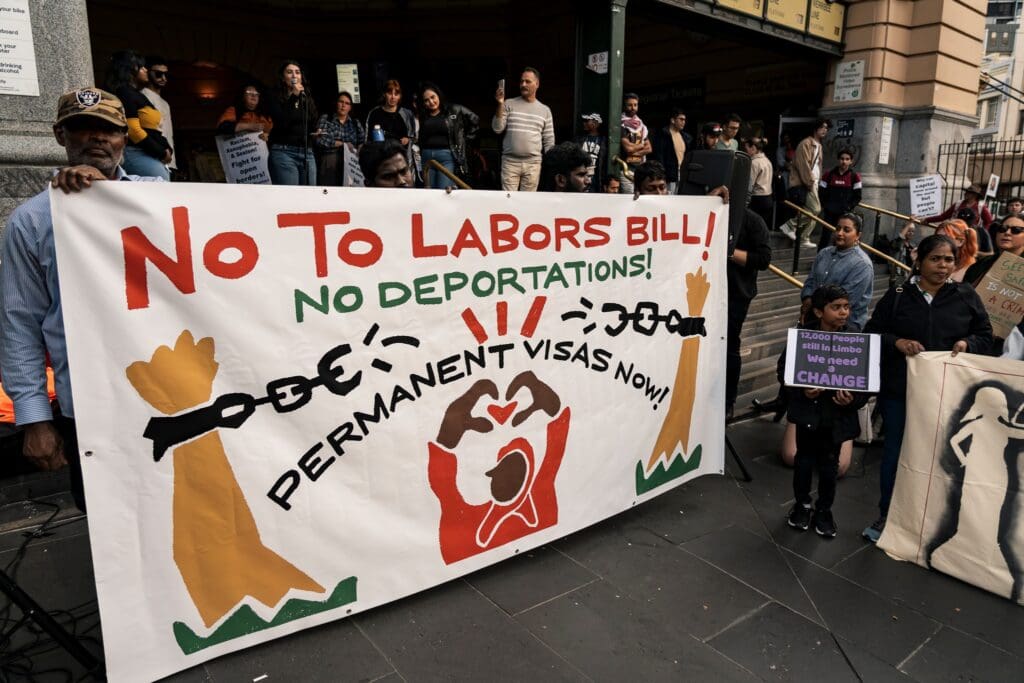Strengthening Democracy: HRLRC and GetUp! Case Restores Right to Vote to Over 100,000 Australians
On 6 August 2010, in an historic decision, the High Court struck down legislation which resulted in the early close of the electoral rolls and denied over 100,000 Australians the right to vote.
The decision was a landmark victory for representative democracy, political participation and accountable government.
The case was a constitutional challenge to the validity of changes to the Commonwealth Electoral Act 1918 made by the Electoral and Referendum Amendment (Electoral Integrity and Other Measures) Act 2006. The Amendment Act resulted in the electoral roll being closed on the day on which the electoral writ is issued for new or re-enrolling voters, and three days after the writ is issued for voters updating enrolment details. Previously, the electoral roll remained open for a period of seven days after the issue of the writ.
According to the AEC, historically, the calling of an election has resulted in significant numbers of persons enrolling or changing enrolment during the 7 day period, particularly young Australians. The 7 day period enabled the AEC to advertise and promote enrolment and target particular groups with information campaigns, including Indigenous Australians and people experiencing homelessness. At the 2004 Federal Election, approximately 423,000 people enrolled, re-enrolled or updated enrolment during the 7 day period.
In the Centre’s view, it is crucial to representative democracy and accountable government that all people have the right, and the practical opportunity, to vote. As art 25(b) of the International Covenant on Civil and Political Rights provides, ‘every citizen shall have the right and the opportunity…without unreasonable restrictions, to vote and to be elected at genuine periodic elections which shall be by universal and equal suffrage and shall be held by secret ballot, guaranteeing the free expression of the will of the electors’. The UN Human Rights Committee, in a General Comment, has confirmed that states have positive duties under art 25(b) to ensure that ‘disadvantaged citizens have the opportunity to vote and have access to information that helps them exercise this right meaningfully’. Expert commentary states that this establishes a ‘duty on States parties to guarantee with positive measures that all formally eligible persons have the actual opportunity to exercise their political rights…States parties must take positive steps to ensure that persons are truly able to exercise their right to vote’.
The early close of the rolls, which occurred thanks to Howard-era amendments, denied over 100,000 people the opportunity and right to vote. The legislation disproportionately disenfranchised Indigenous Australians, young people, people experiencing homelessness and people in remote communities. In so doing, the legislation diminished our democracy.
The decision of the High Court, in ordering that the rolls stay open for at least 7 days to enable people to enrol or update their enrolment, restores and promotes the fundamental human right to vote and, in so doing, enhances democracy and promotes representative government.
The challenge to the early close of the rolls was jointly conceived and coordinated by the Human Rights Law Resource Centre and GetUp! and builds on the previous work of the Centre in establishing constitutional protection of the right to vote in the landmark High Court case of Roach v The Commonwealth [2007] HCA 43.
The matter was run pro bono by an outstanding legal team comprising Ron Merkel QC, Kristen Walker, Fiona Forsyth and Neil McAteer of Counsel, together with Mallesons Stephen Jaques.
Philip Lynch is Executive Director of the Human Rights Law Resource Centre

Why we need stronger whistleblower protections
In March, Associate Legal Director, Kieran Pender was at the ACT Court of Appeal to observe McBride’s appeal – he is challenging his conviction, and the severity of his sentence.
Read more
International Women’s Day: Rights, equality, empowerment
International Women’s Day is more than an anniversary, it’s a global celebration of what has been achieved over centuries of campaigning and action by women fighting for equality.
Read more
High Court challenge launched for man facing deportation to Nauru
The Human Rights Law Centre has filed an urgent High Court challenge on behalf of a man who was scheduled to be deportated to Nauru. After filing the legal challenge, the Australian Government promised that our client would not be removed before his case was finished.
Read more


